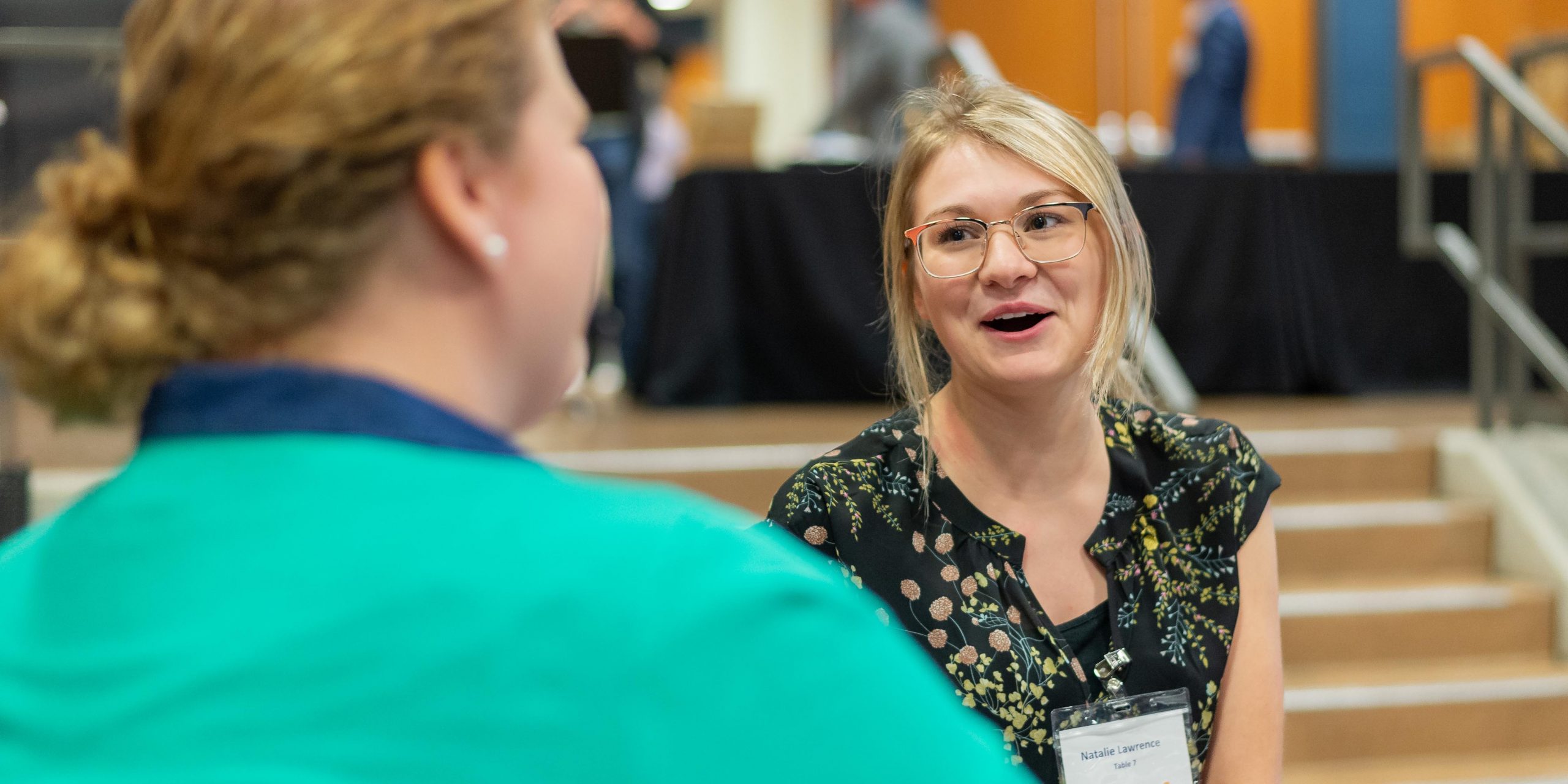If you have questions about budgeting or paying off loans, you’re not alone. It’s an important topic, but it can be overwhelming at first. We’re here to help you start off on the right foot with some highlights from a recent financial intelligence seminar, featuring Bethel alumni who have experience in various areas of personal finance.
In this blog post, we summarize the questions and answers that came up during a session titled “Basic Monthly Budgets and Debt-Free Living.”
How do I make a budget?
Simply put, budgeting is just identifying your priorities in life and making conscious decisions about how your money can support those priorities. If you don’t have a budget in place or if you’ve recently experienced a life change (maybe you graduated from college or got married), begin by simply tracking your expenses for a couple of months. Understand what you’re spending, and then once you’ve collected enough information sit down and make your budget.
Making a budget is an opportunity to identify what you care about. If you have loans and it’s important to you to pay them off quickly, budget for payments that are higher than the minimum. If you care about eating healthy, you might plan to spend a little more on food per month. If you want to prioritize traveling, perhaps you’ll set aside a percentage of your income for that.
Looking for a platform to use for building your budget? Consider trying out budgeting apps like Mint, You Need a Budget, or Copilot.
If I have student loans, does that mean I can’t do things like eat out or travel?
It depends on your goals! If those experiences are important to you and you’re not falling behind on other necessary payments because of them, make a line for them in your budget. The important thing is being cognizant of the money you’re spending. If you’re feeling like you may be spending too much and need to make some changes, start checking in with yourself. One way to do this is by pausing at the end of every month to look at the money you’ve spent in each category of your budget. Ask yourself whether you feel like you got the appropriate value in return for the money and time you spent. If the answer is no, consider making a change.
Which loans should I pay off first?
If you are actively trying to pay off your debt and have the ability to make more than the minimum payments, you can consider two different methods: the debt avalanche and the debt snowball.
- Debt avalanche: Make minimum payments on all loans, and put additional money toward your loan with the highest interest rate. This will minimize the amount of interest you’ll pay, and you’ll likely get out of debt faster.
- Debt snowball: Make the minimum payments on all your loans, and put additional money toward your smallest loan. Once you’ve paid off your smallest loan, move on to the next smallest. While you’ll ultimately pay more interest with this method than with the avalanche method, the snowball method can be more motivating for some because they see results (loans paid in full) more quickly.
How does compound interest work?
In the context of a loan, compound interest is interest that builds on both the principal value of the loan and on the subsequent interest that accrues. The higher your interest rate, the more quickly you will accrue more debt. This is why it can be advantageous to pay your loans off sooner than scheduled. But when it comes to investing, compound interest works in your favor. A simple way to start taking advantage of the positive aspects of compound interest is contributing to a retirement fund, like a Roth IRA.
How can I manage multiple streams of debt?
Student loans. Car payments. Maybe you have a home mortgage or one is in your future. Managing multiple areas of debt can feel intimidating and overwhelming. For the most part, though, attentive budgeting can help alleviate that stress. Make a plan, write out your priorities, and use your money for a purpose.
How do I talk to my future spouse about finances?
The key here is to practice having honest conversations, and doing so often. Finances are a part of daily life, so it’s important to be able to be transparent. Ask questions about what is important to each other individually. Then have a conversation about what will be important to both of you as a family. You can find Bethel alumnus David Freed on Instagram at @wealthyweds for more on this topic.
Where can I learn more about personal finances?
It’s called “personal finance” for a reason. What works for one person might not work for another, so it’s important to do your own research. The following resources were recommended by the presenters:
- The Secret to Finance (Web resource)
- The Money Guy Show (Web resource)
- Rich Dad, Poor Dad (Book and web resource)
- The Simple Path to Wealth (Book)
- Optimal Finance Daily (Podcast)
The seminar session on which this blog post was based featured a panel of Bethel alumni, including Lana Nelson ’09, David Freed ’13, Sarah Sanchez ’17, and Peter Carlson ’10. Each has found his or her own success with paying off debts efficiently, and they’re passionate about helping others do the same. This session was part of a larger financial intelligence seminar hosted by Bethel University’s Office of Alumni and Family Relations. For more resources like this seminar, visit our alumni event page.

